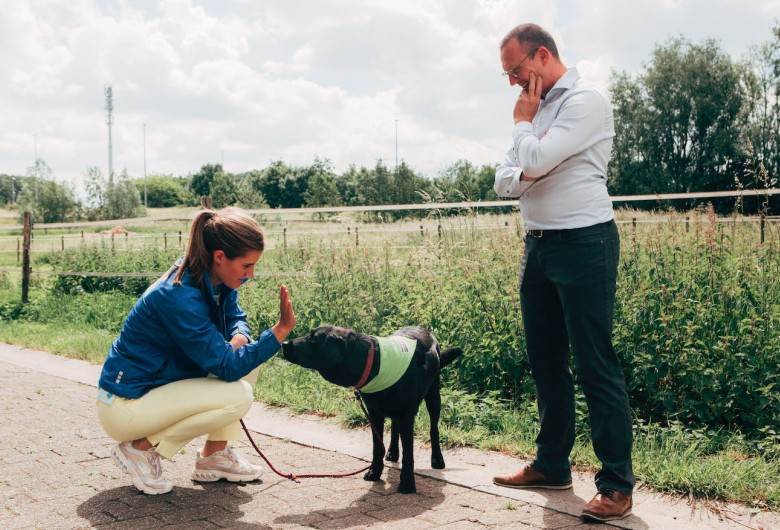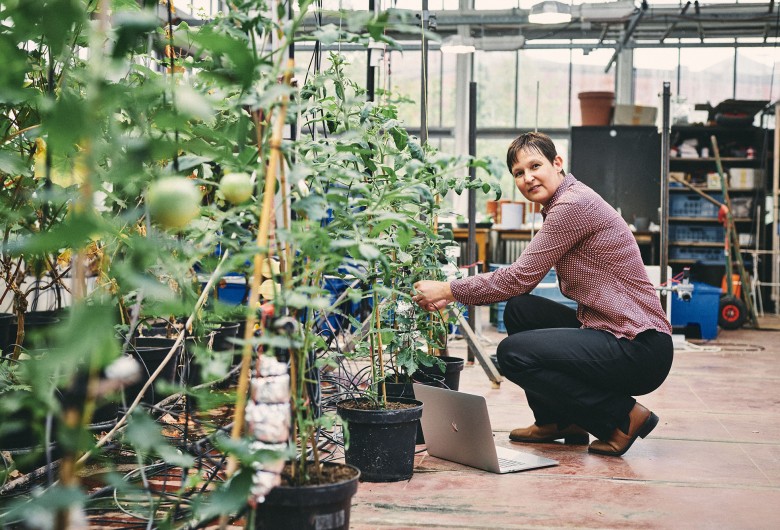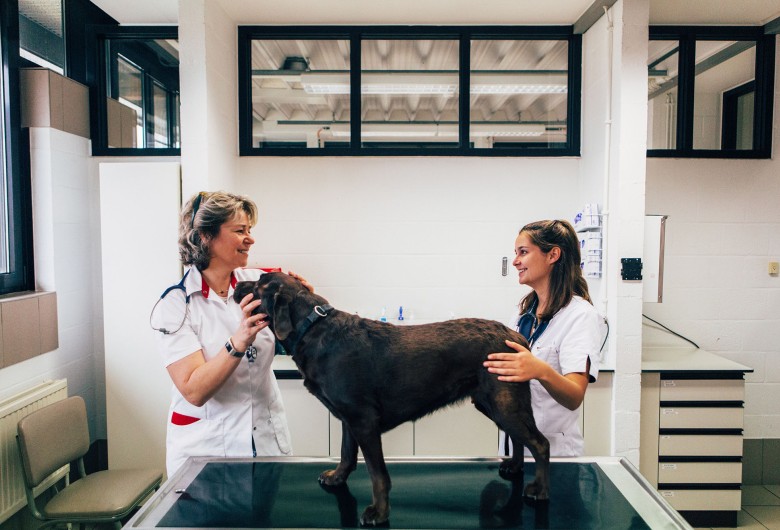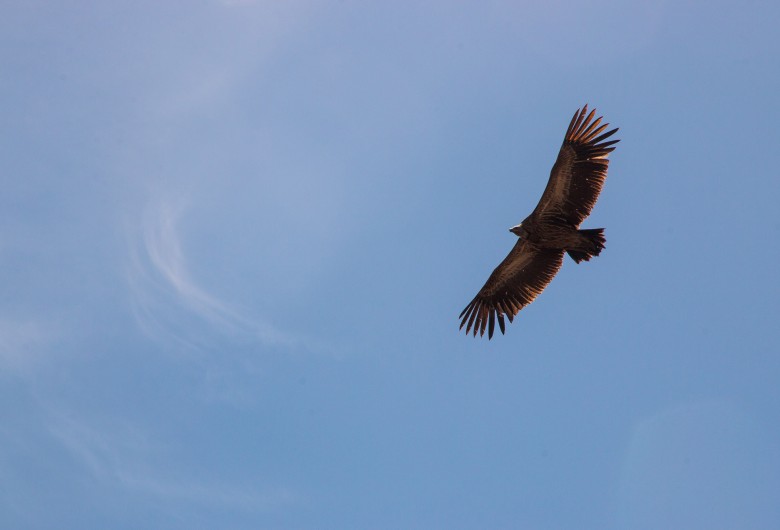Sweating without the annoying smell? In fact, it’s possible! Much is to do with the bacteria living under the armpit. Chris ‘Doctor Armpit’ Callewaert explains.
Research and society
Welcome to the design atelier of the future
The design world on the eve of a revolution: all kinds of recyclable and organic materials are making an entry, in an effort to oust less sustainable materials such as plastic. For example, chairs made of cork, urns made of mycelium or light fittings made of mown grass.
Many assistance dogs are rejected before they can even embark on their ‘job’
Only forty per cent of assistance dogs in training actually end up becoming a proper assistance dog. This problem not only causes long waiting lists, it also costs a lot of money. A collaboration, in the form of a professorship between professor Bart Broeckx and the non-profit organisation Purpose Dogs aims to find a solution.
Plants can ‘tell’ themselves they are thirsty
“Most people water their plants too much. Or too little. Knowing exactly how much water to give them is not easy,” says Professor Kathy Steppe. She uses sensors to meticulously measure when plants need water and how much.
How best to keep your chocolate cool in summer?
If you have a sweet tooth, you’ll know how difficult it is to keep chocolate cool during the summer months. So where should you store it? In a cupboard or in your fridge?
Here’s how to protect your four-legged friend from the heat
While we humans tend to enjoy the hot summer days, it can often be hell for our dogs and cats. What’s the best way to keep those furry friends nice and cool? Common sense will get you a long way, says professor Sylvie Daminet, chair of the Department of Small Pets.
CO₂ from steel manufacturer transformed into fish food
What does steel production have to do with fish-food production? Everything! If you ask Myrsini Sakarika and Nele Ameloot from Ghent University. After all, they are helping to convert CO2 from the steel manufacturer ArcelorMittal Belgium into proteins, which can then be used for fish food. Pioneering research, although some finetuning is still necessary: “Fish are pretty demanding when it comes to their diet.”
Plants perk up … with chicken feathers
Chicken feathers are full of valuable substances. Working with STAMAGRO, the start-up in East Flanders, researchers at Ghent University have helped to find a way to turn these substances into a product that benefits the growth of plants. That also means less nitrogen and CO2, because the plants require less fertilizer. And it reuses the feathers, which would otherwise end up in the rubbish. Win-win!
Sweetener that tastes exactly like sugar: nice work by (Flemish) biotechnology
A new sugar replacement, call it Stevia 3.0, tastes just like sugar and is much healthier. It’s been developed by an American company, but conceived with input from Ghent-University professor Marjan De Mey. A partnership that will clearly stick around in the future.
Why one bird flies further than another
The darker a bird’s wing, the better it can fly. That’s the conclusion reached by Michaël Nicolaï, as a biologist and researcher at Ghent University. “Pigment seems not only to give colour, it also helps in flying for longer.”
When should your underwear, vests, t-shirts, towels or sheets be changed?
Do you change your underwear every day? The chances are that you do. Did you know that this is actually unnecessary? Less laundry but more targeted, that’s the message from Ghent University researcher Chris Callewaert.
Stonehenge reveals traces of a much older past
A particularly valuable discovery has turned our knowledge of Stonehenge upside down. On the most researched site in the world, a research group including a few Ghent University students has found traces that are much older than anything that has been excavated so far. We know that there are still secrets to be uncovered from bio-engineer Philippe De Smedt, among other things thanks to soil scans.










